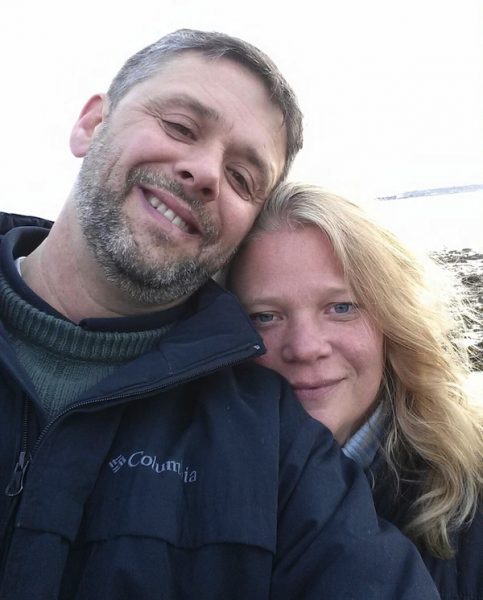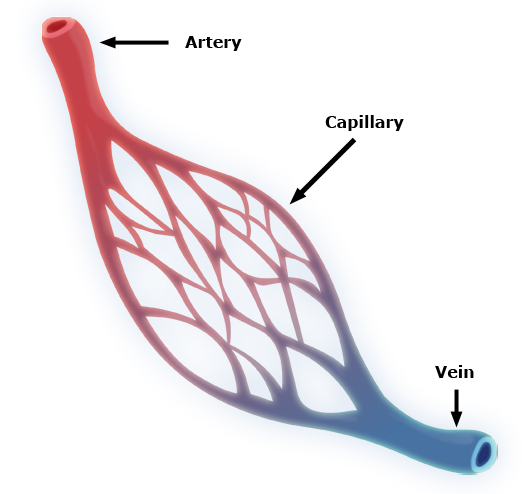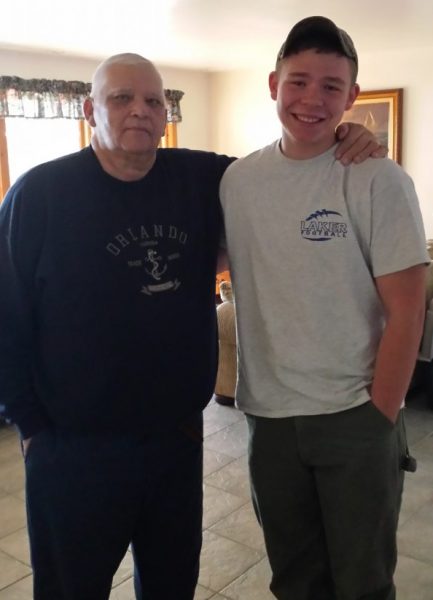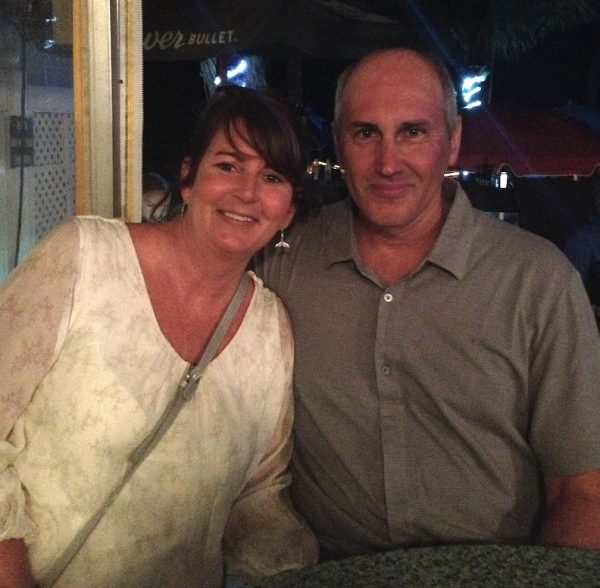Lots of people get bloody noses, especially as kids. But when you get them a lot and sometimes they go on and on and on, it’s time to take notice. Darcey Pomerleau’s father had a history of bloody noses that got worse when he reached his 50s. One episode led to a diagnosis he’d never heard of before. HHT. It stands for Hereditary Hemorrhagic Telangiectasia — a genetic disorder of the blood vessels. It occurs in about one in 5000 people.
The fact that it’s hereditary meant that Darcey and other family members were also at risk. It’s 50-50 if a parent has HHT. After her father was diagnosed, she and her two siblings found out they all have it. Her two children do not.
The connection point between an artery and a vein is fairly fragile and may easily rupture and bleed. The capillaries play an important role because they help slow down the high-pressure flow from arteries into veins.
When a person has HHT, some arteries and veins are abnormal and don’t have capillaries between them. These abnormal blood vessels are called telangiectasias. The most common places for them to occur are on the skin, especially the face and hands and in the lining of the mouth and nose.They can also be in the digestive tract. When they’re in the nose, they cause nosebleeds. It’s the number one symptom of HHT.
Not long before he was diagnosed, Darcey says her father had such a bad nosebleed the doctor cauterized it to make it stop. It wasn’t the best solution. “While he recognized it as HHT,” Darcey explained, “he wasn’t trained in how to treat it so he cauterized the hell out of my dad’s nose which caused more damage in the long run.”
Darcey also had a scary experience in a medical clinic. She was there for something else when her nose began to bleed and wouldn’t stop. “I sneezed and began hemorrhaging,” she said. “My son ran out of the room, screaming somebody needs to help my mom. They kept saying it was like hemophilia, that it was clotting issue. And I kept going, no, it’s vascular. I kept saying to them, I can’t lay backward. If I do, I’ll aspirate on my own blood. I finally got the bleeding under control. Once it stops bleeding, it’s done. I know it’s done.”
Finding medical professionals who know what HHT is and how it should be monitored and treated has been one of the family’s biggest challenge.
It’s the same situation for Lisa Burns. Her husband Jay and their two children have HHT. “My mother-in-law always had bloody noses,” she said. “She had mentioned at some point that she had HHT, but she never really mentioned to us how serious it could be. And my son who is 24, when he was in high school, started having some issues with his head. He always had bloody noses. At some point, he said he couldn’t stand the pressure feeling in his head anymore so he had an MRI.”
The MRI showed that Lisa’s son Zach had two AVMs or arteriovenous malformations in his brain. He also had some in his lungs. Like a telangiectasia, an AVM is an abnormal blood vessel, only it involves larger vessels and can be very dangerous. Zach underwent Gamma Knife treatment, which used focused radiation to destroy the AVM. “It takes about three years to work,” said Lisa. “In November, he’ll be two years out. It has shrunk a little bit.”
Her daughter has some AVMs in her lungs but has no symptoms and her husband has none.
What both families have learned from their experiences is that they always have to be on top of things. More often than not, they’re sharing information with their medical providers instead of the other around, which is often discouraging. “We saw doctors around here and
There are some HHT Centers of Excellence in the country. Darcey’s family travels to Connecticut to see a specialist at St. Vincent’s Hospital, an affiliate of Yale. Lisa’s family recently visited the HHT Center at Mass General in Boston. And both families have encountered medical professionals who are either knowledgeable or willing to learn. But Darcey says it can be a battle. “A constant battle telling people I have HHT,” she said. “It’s not a bleeding disorder it’s a vascular disease. We don’t have capillaries. It can affect every part of our major systems. I go in for iron infusions every other month because I‘m anemic from losing so much blood. I actually heard one of the office staff say, ‘She’s coming back?’ They don’t understand that it’s an ongoing thing. It’s not a one-time fix. That’s hard.”
HHT legislation
Darcey is now advocating for HHT legislation. A bill has been proposed but they need to find a sponsor. H.R.1849 – Hereditary Hemorrhagic Telangiectasia Diagnosis and Treatment Act of 2015. “I’m pushing for our senators to get involved and help us get a better quality of life,” she said. “The only way that’s going to happen is if more information is out there. Education of doctors, better technology, simple access to somebody who knows what they’re doing when they’re dealing with us. Easier access to genetic testing, better health insurance coverage.There are so many things that this bill will incorporate.”
More information
For now, as they take care of themselves and their families, Darcey and Lisa will continue to educate as many people as they can along the way. You can get more information about HHT on the HHT Foundation website, which is called Cure HHT. The foundation also has a Facebook page. If you’d like to get in touch with Darcey or Lisa, either leave a comment below or send me an email and I will pass it along.







It began with my mother’s family of nine. Then my brother and I were diagnosed, plus his children and my daughter Beth. The things I have gone through beginning at 14 when told it was TB until now at 74 years where I have internal bleeding, following 2 lungs surgeries in the 1950’s and 60’s, and finally interventional radiology at Yale. You must be a detective to get a diagnosis. There was no proper diagnosis in my mother’s Day so everyone was sent to a TB sanitorium, and I was isolated in my bedroom while losing part of my freshman year in high school which I made up by summer school. I was never able to run any distance. I wish people would understand there are many disorders involving great suffering which aren’t well known, but unlike cancer and heart disease etc. we are in the shadows. It’s awful giving this to your child. It changed the entire trajectory of my life. Jackie Nielsen
Oh, my, Jackie, that’s quite a story. I think these days through social media people are sharing their stories and learning more about these problems from one another. Unfortunately, many are still living in the dark.